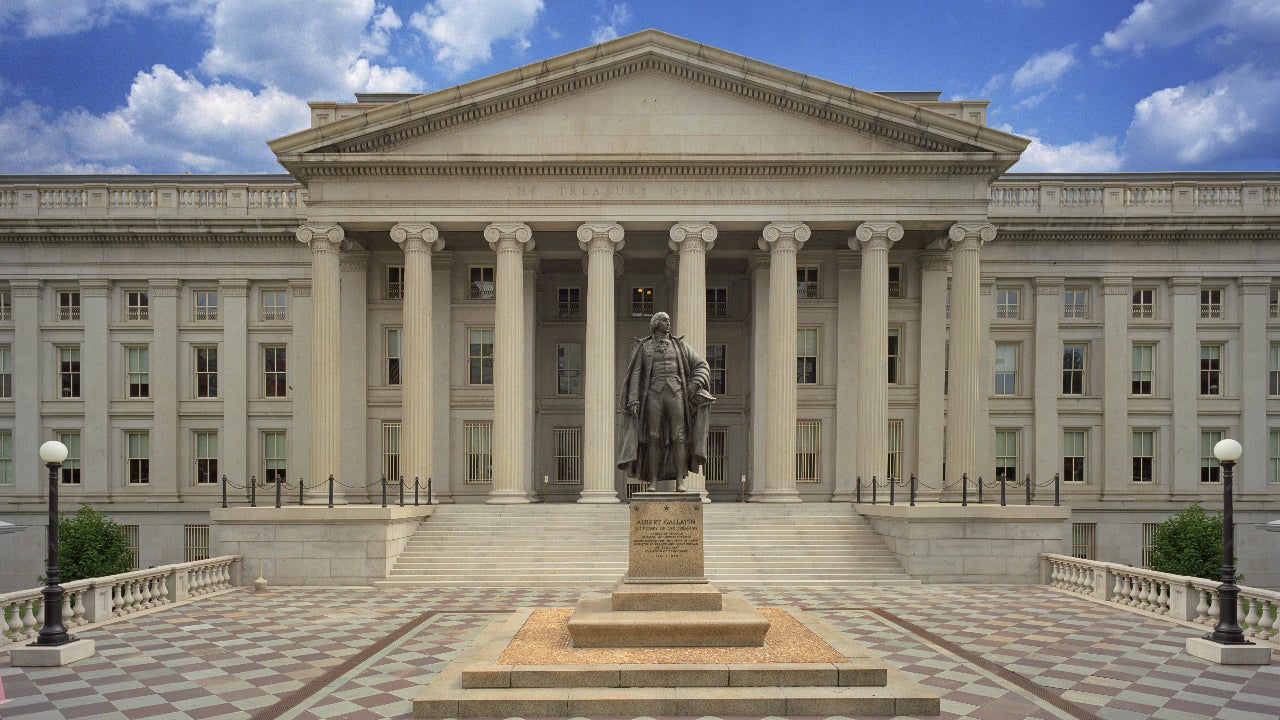How high can a credit card’s interest rate go?

Key takeaways
- Interest rate caps are controlled at the state level by usury laws, but those laws have a long list of exemptions.
- Credit card companies and banks are often exempt from state usury laws, meaning there are no maximum credit card interest rates at the state level.
- Due to federal laws, some interest rate caps are in place, but those are reserved for special circumstances, like being enlisted in the military or working with a federally chartered credit union.
You may be surprised to learn that, generally, there isn’t a limit to how high your credit card interest rates can go. While many states have usury laws that limit the interest rates that lenders can charge, many of these state laws don’t apply to credit card rates. Instead, they apply mainly to loans, and even then, financial institutions tend to get around them through exemptions.
As many cardholders have seen, average card interest rates have remained stagnant above 20 percent for months. The steadily high rates have been influenced by the Federal Reserve’s ongoing fight against inflation. However, beyond the Fed’s impact, there are other situations in which your card issuer can raise interest rates on your account without notice.
When can your card’s interest rate go up?
A card issuer generally cannot hike your interest rate during the first year you open the account. After that period it must notify you 45 days in advance about any rate changes, per the Credit Card Accountability Responsibility and Disclosure Act — or CARD Act. There are a couple of situations where it can raise it sooner.
If you have an introductory 0 percent APR, your issuer will raise your rate automatically once the promotional period ends.
If you don’t make at least your minimum payment for 60 days, your issuer could impose a penalty interest rate on your account.
Any new purchases you charge more than two weeks after this notice period will be assessed interest at the new rate. If you disagree with the interest rate change, you can cancel your credit card instead. In that case, you’d pay off any existing balances on the account at your lower current rate.
Credit card interest rates by state
Because so many exemptions to usury laws exist, states effectively don’t have credit card interest rate caps. In California, for example, the state’s usury law limits rates on consumer loans to 10 percent. However, California also exempts loans made by banks and credit unions from this usury law. Many other states also exempt banks from their usury laws.
Banks can also charge interest rates based on the prevailing rates in the state where they are headquartered or have branches, rather than in the consumer’s state. This means that the only financial institutions typically affected by usury laws tend to be lending companies that are not part of a bank, such as payday lenders.
To elaborate, consumers are beholden to the rules of the credit card agreement, which often stipulate that rates are determined by the bank’s jurisdiction and not the consumer’s. That’s why credit card issuers tend to be based in states such as Delaware, Missouri and South Dakota that have less stringent (or nonexistent) usury laws.
Highest credit card interest rates
Even though usury laws don’t affect credit card companies, they still tend to offer APRs with a range similar to competitors, dependent on various factors. This is because these card issuers still want to remain competitive and don’t want to risk pushing their products too far out of the range of what consumers can get from competing lenders. Here’s a list of popular issuers and the APRs they’re offering on various card products at the time of writing:
- American Express: The Blue Cash Everyday® Card from American Express’s APR is 19.49%-28.49% Variable
- Capital One: The Capital One QuicksilverOne Cash Rewards Credit Card’s APR is 28.99% (Variable)
- Discover: The Discover it® Cash Back’s APR is 17.49% - 26.49% Variable APR
- Chase: The Chase Sapphire Reserve®’s APR is 19.49% - 27.99% Variable
Note that these interest rates are the listed maximums for a card’s APR range, which can vary based on the applicant’s creditworthiness and the Federal Reserve’s prime rate. Applicants could still get a lower rate on many cards. Other cards outside this list may also have higher APRs if they’re marketed toward applicants with lower credit scores.
No matter what credit card you own, it’s essential to know your card’s APR, especially since your state’s usury laws likely won’t matter to your card issuer.
How to check your interest rate
The easiest way to find your interest rate is to look at your credit card’s monthly statement. Beyond your transactions and summary of your spending, it will also list your annual percentage rate (APR). The rate will also be featured in the card’s terms and conditions in the table, called a Schumer box, at the top.
It should also be listed online or in the mobile app. It can be listed under your account information or in the digital statement. If you’re having trouble finding it, you can also contact your issuer and ask a customer service representative. The number should be on the back of your card.
When do rate caps apply?
There are some situations in which consumers get the protection of a cap on their interest rates. One exception is for cards issued by a credit union. The law states that federal credit unions can’t charge their members a rate higher than 18 percent, including all finance charges, on their unpaid balances.
Also, if you are actively serving in the military or are a covered dependent of such a person, the Military Lending Act caps the interest rates, including finance charges, on your credit card debt at 36 percent.
For any loans taken out or credit card debt incurred before you became an active servicemember, the Servicemembers Civil Relief Act provides relief, with interest rates on cards for military members capped at 6 percent. This is to ensure service members can focus their attention on serving the nation. For loans, you’ll need to notify your lender about your military service and ask for the cap.
The bottom line
The CARD Act does not include a cap on credit card interest rates. While state-level interest rate caps and usury laws exist, many of those laws don’t apply to credit card rates in practice. Moreover, banks can charge interest rates that apply to the states where they are based, rather than the state where you live.
Read the fine print of your card’s agreement to determine which state’s laws apply to your credit card balance, and watch out for communications from your issuer. Your card issuer will generally have to give you 45 days’ advance notice if it wants to increase your rate.
Why we ask for feedback Your feedback helps us improve our content and services. It takes less than a minute to complete.
Your responses are anonymous and will only be used for improving our website.






